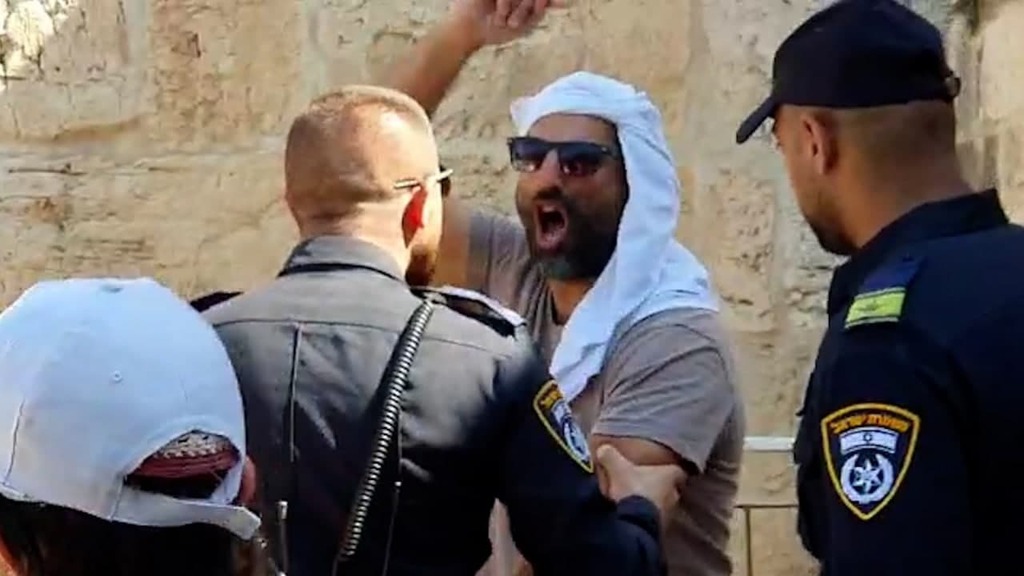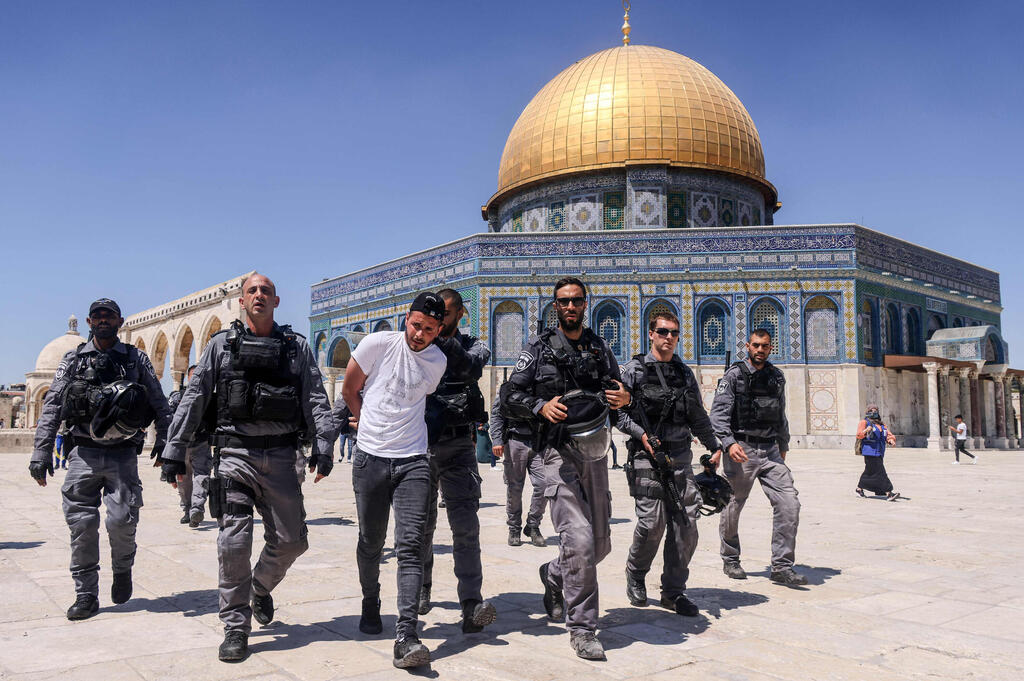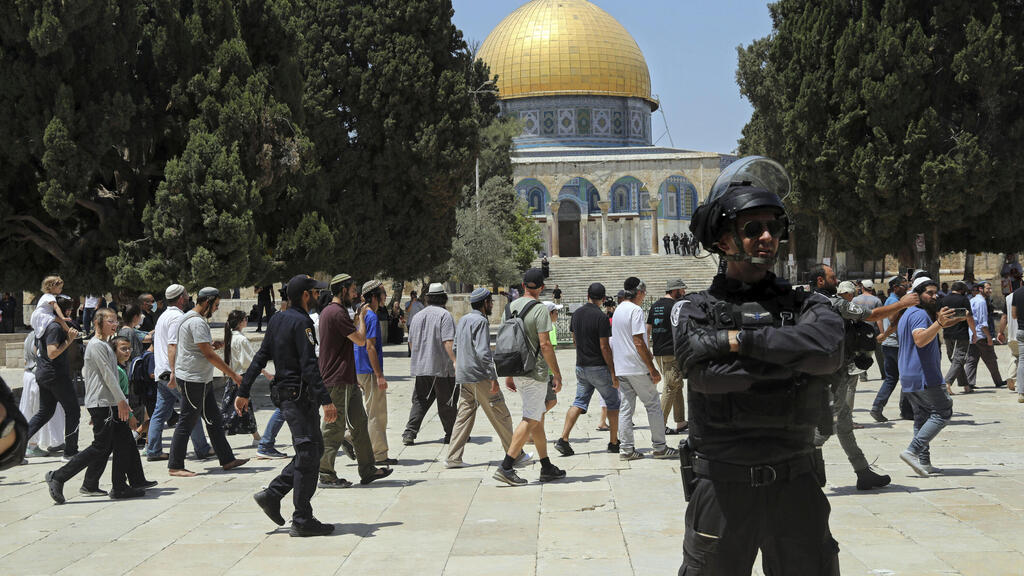Getting your Trinity Audio player ready...
Prime Minister Naftali Bennett’s office on Monday appeared to backtrack on his assertion that Jews should be able to pray on the Temple Mount in Jerusalem - a site holy to both Jews and Muslims where Jewish prayer is banned under the terms of an agreement struck after the 1967 Six-Day War.
The clarification came after Bennett on Sunday thanked the law enforcement agencies for "upholding freedom of worship for Jews" who journeyed to the hilltop site to mark Tisha B'Av (the ninth day of the month of Av in the Hebrew calendar), which commemorates the destruction of the two biblical temples that Jews believe once stood there.
According to the status quo maintained at the site since the end of the 1967 war, the Jordanian waqf (Islamic religious authority) has responsibility for the area and Muslims have long protested any Jewish presence on the mount - the holiest site in Judaism - as a "provocation" and a catalyst for unrest.
Bennett’s statement also included a pledge to uphold freedom of worship for Muslims at the site, which is also holy to them. But the visit Sunday by hundreds of Jews marking Tisha B'Av drew widespread Muslim condemnation, including from the Islamist Ra'am Party that is a member of the current Israeli government.
“The Al-Aqsa Mosque on its 144 dunams [35 acres] is the sole property of Muslims and no one else has any right to it,” said Ra’am.
The party also expressed disapproval over police officers clearing the area of stone-throwing Palestinians early Sunday morning and the subsequent arrival of Knesset members, some of whom sang Israel's national anthem Hatikvah close to the mosque.
3 View gallery


A Muslim protester shouts an Israeli police officer over the presence of Jews on the Temple Mount on Sunday
Ra’am warned that such actions could lead to a renewed escalation of violence at the site. Repeated clashes between Muslim protesters and Israeli police were cited by Hamas as a catalyst for the terror group launching thousands of rockets at Israeli communities during the 11-day conflict in May.
“The events that may result from [this visit] could kindle the situation in Jerusalem and the entire region, leading to a catastrophic religious war,” Ra’am said.
“The blessed Al-Aqsa Mosque, on all its land, is the sole right of all Muslims. The Islamic Movement and the Palestinian people will stand as an impenetrable dam against all attempts by extremists to establish new facts on the ground" at al-Aqsa," the party said.
3 View gallery


Israeli police forces arrest a Muslim protester following clashes at the Temple Mount in Jerusalem on Saturday, the eve of Tisha B'Av
(Photo: AFP)
The presence of Jews on the Temple Mount on Sunday also drew criticism from Egypt and Jordan, Israel's two neighbors with which it has a peace agreement.
Amman issued a letter of protest over what icalled the “storming of the holy compound by extremist settlers under Israeli police protection.”
The Egyptian Foreign Ministry said it condemned the "renewal of violations at the al-Aqsa Mosque by Israeli extremists."
Cairo also said that Egypt had previously warned of an "attack" on the al-Aqsa Mosque, and that "the responsibility for maintaining the security of worshipers rests with Israel."


